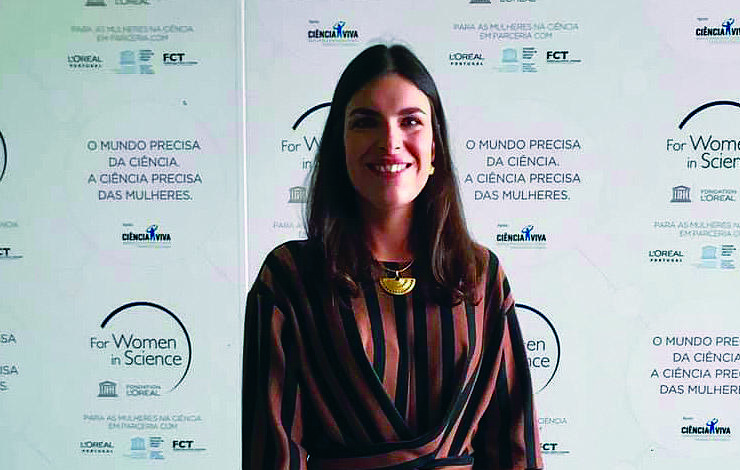13-03-2019

Diana Madeira, a postdoctoral researcher at the BioTox laboratory at UCIBIO and a former PhD student at FCT NOVA, was honored with an L'Oréal Portugal Medal of Honor for Women in Science.
The project aims to realize how marine organisms respond to climate change and pollution throughout generations. Diana Madeira explains that "it intends to study the molecular and cellular mechanisms that marine organisms induce to respond to a changing environment and how these measures relate to parameters of survival and reproductive success on an extended time scale (mechanisms of transgenerational plasticity)".
Most studies on the impacts of global changes on marine organisms focus on only a single generation, limiting the prediction of what might happen in the long term. At the same time, the molecular mechanisms that dictate the ability of organisms to cope with stress throughout generations are still poorly understood. "Thus, we intend to know the long-term (multi-generational) vulnerability of marine species to the global changes and to understand this vulnerability, so that we can improve and adapt the management of marine resources and maintain the sustainability of the oceans," concludes Diana Madeira.
In addition to Diana Madeira, Patrícia Reis, from the Medical School of ULisboa, Joana Cabral, from the Institute of Research in Life Sciences and Health (ICVS) and Joana Caldeira from the Institute for Research and Innovation in Health (i3S / INEB) ) awarded also an L'Oréal Portugal Medal of Honor for Women in Science.
The L'Oréal Portugal Honor for Women in Science Program is an initiative of L'Oréal Portugal and is developed in partnership with the UNESCO National Commission and the Foundation for Science and Technology (FCT) "to support and motivate early-stage scientists to pursue relevant projects in the area of health and the environment."
Check out our doctoral programs here.